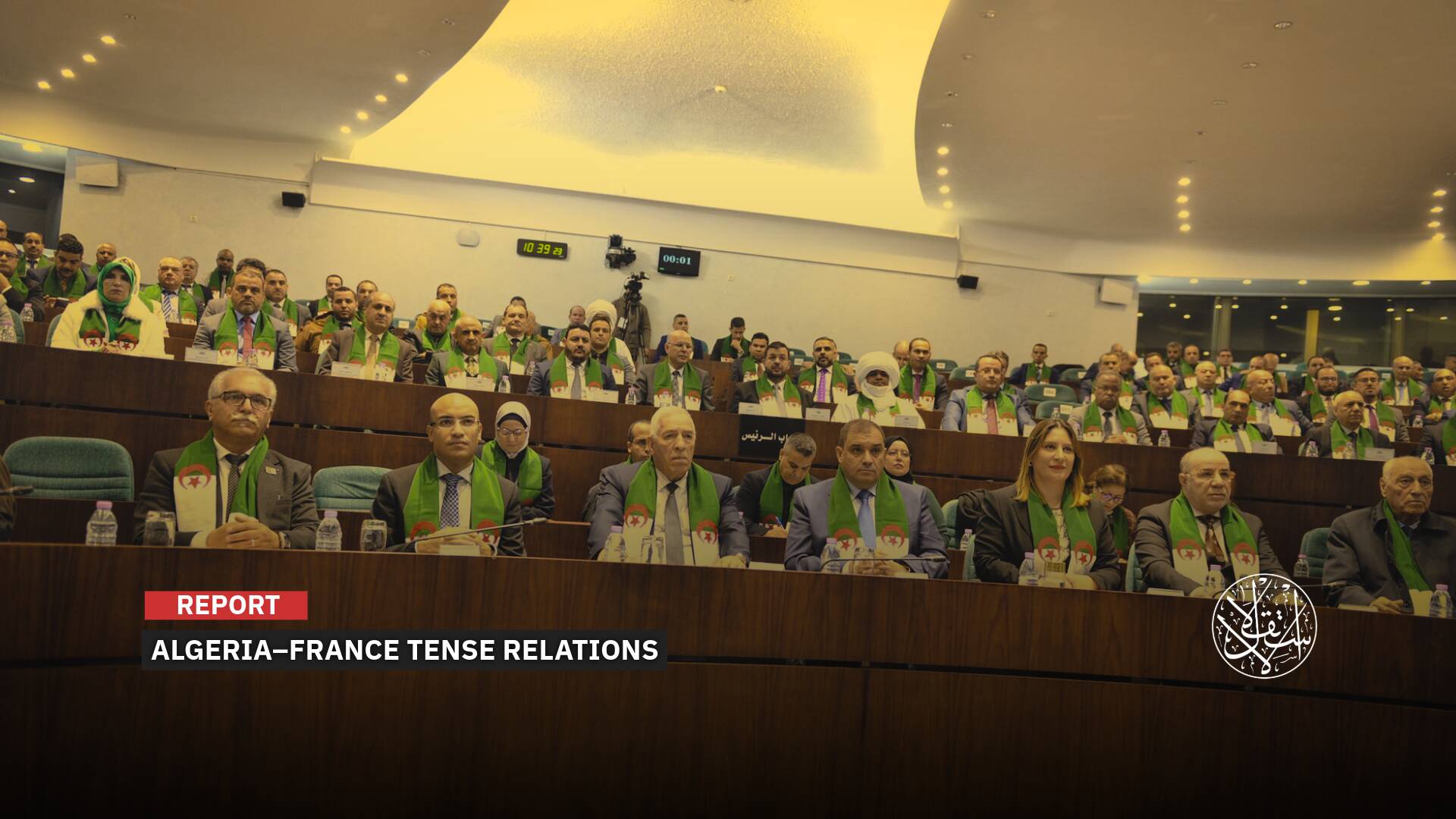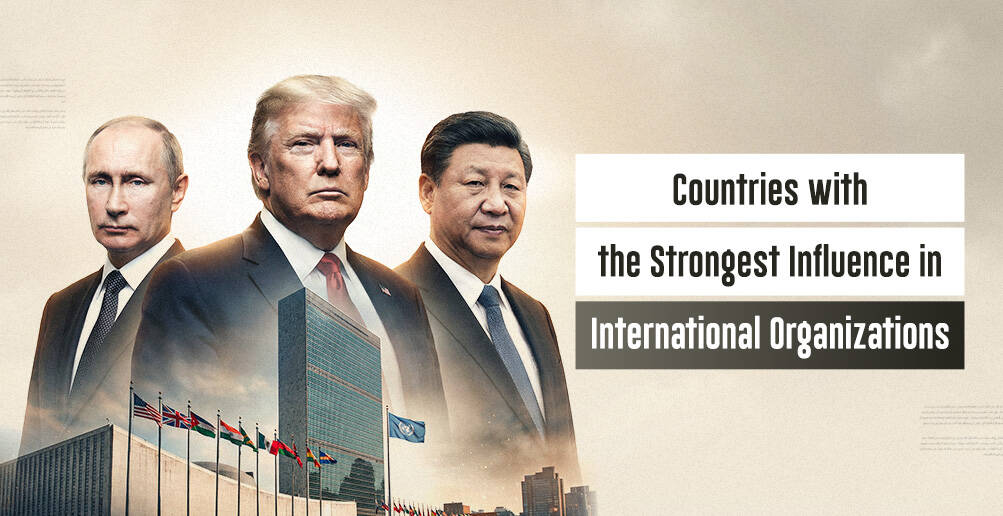What Are China’s Intentions Behind Increasing Its Military Budget Amidst Fierce Competition with the U.S.?

The Chinese army ranks third in the world according to Global Firepower, a military affairs website, in its annual ranking of the world’s most powerful armies for the year 2023.
For decades, China has devoted efforts to developing its military capabilities and preparing for comprehensive naval, air, and ground warfare by primarily relying on domestic resources.
According to the report released by Global Firepower on January 7, 2023, China is on track to emerge as the United States’ primary global military adversary, if it continues on its current trajectory.
The Chinese government’s decision to augment the military budget by 7.2% on March 5, 2023, further underscores this trend. This move enables China to persist with its extensive modernization endeavors, particularly as it confronts complex challenges such as the Taiwan dispute and U.S. military intervention in conflict-ridden regions in the South China Sea, Central Asia, and Southeast Asia.
2050 Promise
On November 9, 2022, Chinese President Xi Jinping announced a goal to complete the modernization of the army by 2035, during his inspection of the joint operations center of the Central Military Commission of the Communist Party.
Xi Jinping said: “The army will become much more advanced than it is now by 2050.”
He requested the top leadership of the army to dedicate themselves to this goal, with full readiness to fight at any time according to the requirements of the modern age.
According to the Russian news site Sputnik on March 26, 2023, Beijing plans to spend CNY 1.553 trillion ($224 billion) on defense, which is less than three times the U.S. defense budget.
These budgets worry the United States, to the point that the U.S. Department of Defense accused Beijing in November 2022 of wanting to increase its nuclear arsenal to 1,500 warheads by 2035.
According to the Stockholm International Peace Research Institute’s 2022 report, China possesses 350 nuclear warheads, while the United States has 5,428, Russia has 5,977, Britain has 225, and France has 290.

Despite China’s adoption of a different strategy starting from September 3, 2015, when it announced a sharp reduction in troop numbers, as part of a campaign to update and professionalize its military spending toward technology and cyber warfare, the Chinese People’s Liberation Army remains the world’s largest.
It now has a total of 2.035 million men and women, according to a report by the British research center and the International Institute for Strategic Studies for the year 2023.
This number is divided into the Army (965,000), the Air Force (395,000), the Navy (260,000), and the unit responsible for strategic missiles as well (120,000).
The missile force is the most important unit for Chinese strategic missiles, controlling both nuclear and conventional missiles.
100,000 soldiers are employed in the missile force, distributed across 6 separate departments that work independently of each other.
In December 2015, the Strategic Support Force was established, which was the first step in the military leadership’s reforms.
According to the Chinese Ministry of Defense, it is a mix of support units and includes operational forces that use advanced technology, such as electronic and space warfare.
The Chinese army has 3 aircraft carriers, with only 2 currently in operation and the third in a testing phase at sea.
In terms of the air force, China has made rapid progress, according to a study published by the British International Institute for Strategic Studies (IISS) in November 2022.
The report mentioned that it has been supported by new fighter jets such as the J-16 and the stealth fighter J-20, which likely doubled its production rate annually in recent years.

Chinese Leap
China has also caused a genuine breakthrough in the field of high-performance computing technology, which is characterized by Chinese companies owning some of the fastest computers in the world.
This enabled them to achieve an enormous leap, putting the United States and the European Union in a constant state of concern. Washington even imposed economic sanctions on giant Chinese companies in an attempt to slow down China’s supersonic weapons program.
On April 8, 2021, the U.S. Department of Commerce added seven Chinese technology companies specializing in high-speed computing devices to the “blacklist” for their support of the Chinese army, which Washington sees as a threat to U.S. national security.
One of the prominent companies that Washington put on the blacklist and imposed sanctions on was the Chinese company Phytium, a Chinese semiconductor company that designs high-performance microprocessors.
Phytium was founded in 2012 as a branch of the China Electronics Corporation and has a close relationship with the development of the Chinese People’s Liberation Army.
The Chinese military used Phytium’s microprocessors for the supercomputer in the largest aerodynamic research complex in China, which conducts research on weapons that exceed the speed of sound.

On April 10, 2021, The Washington Post published a report stating that China is building advanced weapon systems “that could one day be aimed at a U.S. aircraft carrier or Taiwan.”
It confirmed that Beijing is developing missiles at a secret military facility in southwestern China, relying on the massive computer “powered by tiny chips designed by a Chinese firm called Phytium Technology using American software and built in the world’s most advanced chip factory in Taiwan.”
The report explained that Phytium is an example of how China harnesses civilian technology for strategic military purposes. It utilized a vital link in the global supply chain for electronic chips and established supersonic technology that allows missiles to launch at speeds exceeding five times the speed of sound, which could enable them to evade defense systems, according to the newspaper.
Tensions Escalating
In his analysis of tensions between the United States and the Western world on one hand, and China on the other hand, the veteran American diplomat Henry Kissinger, former Secretary of State, emphasized the warning against an uncontrollable competition erupting between the West and China, and based his evaluation on historical experiences.
In a speech via Zoom during a conference organized by the Royal Institute of International Affairs in London on March 27, 2021, Kissinger stated that if the United States and China do not reach an agreement on a new global system, the world will face a dangerous period similar to the one that preceded World War I.
Kissinger’s view was timely, as on March 28, 2023, Beijing announced its full readiness to cooperate with Russia and threatened the United States with retaliatory measures if the Speaker of the House of Representatives met with the President of Taiwan.
The Chinese Ministry of Defense stated that the Chinese military is ready to work with the Russian military to enhance strategic communication and coordination. The spokesman for the Chinese Ministry of Defense, Tan Kefei, stated that the two countries will cooperate in implementing global security initiatives, and work together to enhance military trust and protect international justice.

China considers Taiwan an integral part of its territory and is determined to reclaim it by force if necessary. China’s One China Principle means that no country should have official relations with both Beijing and Taipei at the same time—a message intended for the United States and its interventions in the conflict in favor of Taiwan.
On March 29, 2023, the Chairman of the U.S. Joint Chiefs of Staff, Mark Milley, responded to China’s statements by saying that the U.S. military is capable of fighting wars in different places if the need arises. However, he also noted during a hearing before the Senate Armed Services Committee that it would be extremely difficult to fight a war with both Russia and China at the same time.
Sources
- After raising his military budget, learn about the capabilities of the Chinese army and its combat units [Arabic]
- Why does China continue to build its military capabilities... Is it preparing for war? [Arabic]
- 2023 Military Strength Ranking
- Warnings about Taiwan.. China is ready to work with the Russian army, and America admits: It is difficult for us to fight the two countries [Arabic]
- Increasing Chinese Defense Spending: Security Concerns and Hidden Intentions [Arabic]
- China organizes a huge military parade and announces a reduction in the number of its army forces [Arabic)










